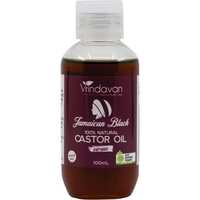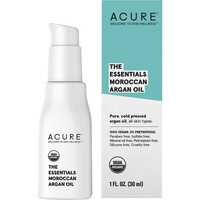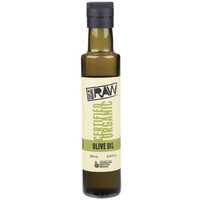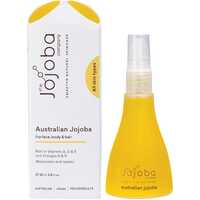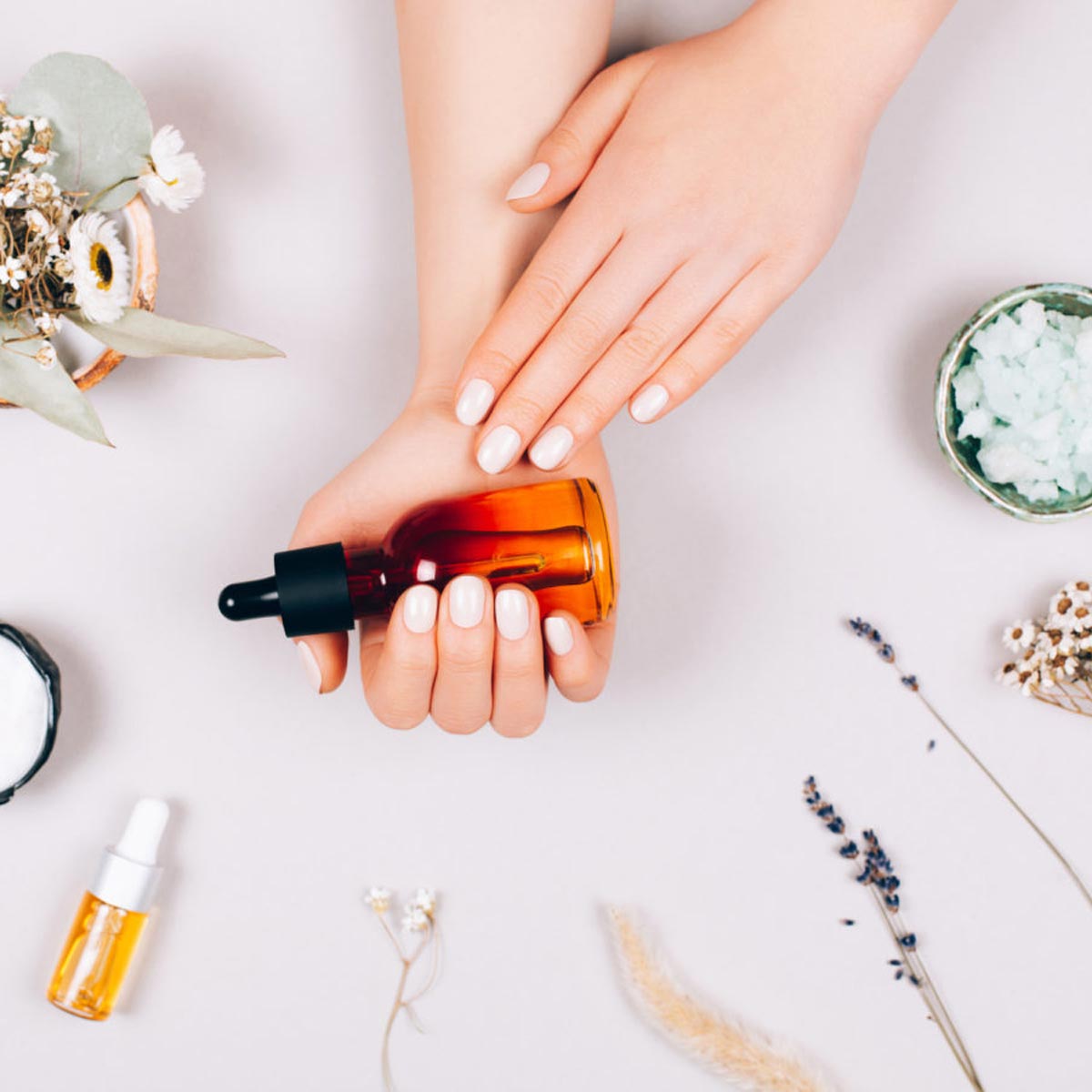Everyone deserves glowing skin. As an important part of how we perceive health and beauty, people have always tried to maintain a healthy and vibrant complexion. From eating healthy foods to avoiding the sun and using topical treatments, there are lots of great ways to look after your skin.
Applying natural oils to the face and body is common across the world, with certain ingredients known to moisturise, nourish, and soothe the skin. If you want to give your skin a natural boost, plant oils are a simple and effective solution.
Let's take a short look at the history of skincare, analyse the benefits of plant-based oils, and list some of the most beneficial products on the market today. With good-quality ingredients and regular application, your skin can look and feel like new.
A Short History of Skincare
Natural oils have long been used for health and beauty purposes. There is evidence of cosmetics and skincare in ancient Egypt 6,000 years ago, with castor oil, sesame oil, and moringa oils applied along with clay soap paste, honey, and olive oil. Much like today, these ingredients were applied to help moisturise the skin, fight wrinkles, and preserve a youthful appearance. The ancient Greeks also used natural ingredients to enhance their beauty, mixing fresh berries with milk and using olive oil as an exfoliant and moisturiser.
In medieval Europe, animal fats were used alongside herbal remedies, aloe vera, and cucumbers. Herbs and honey were often combined to help cleanse and rejuvenate the skin, along with milk baths, vinegar, and natural oils. Pale white skin was all the rage in the 1800s, with zinc oxide and lemon juice used with mixed effects.
The modern skincare industry was developed in the 1900s, with scientific advances and ancient ingredients coming together in a range of commercial products. Some of the most popular skincare ingredients used today have been applied for hundreds of years, including coconut oil, rosehip oil, castor oil, and jojoba oil.
Skincare Oils vs Creams
Skincare oils are derived from plants, seeds, fruits, and nuts. They contain lots of essential nutrients, which work with your skin to prevent dryness and irritation. Skincare oils work phytochemically with the skin’s barrier function, with regular application helping to support the lipid barrier and reduce the impacts of damage.
In contrast, skincare creams are water-based moisturisers combined in much more complex ways. Face and body creams combine water and waxes with oils, plant extracts, and clays. They often include added vitamins and minerals, and they may include a range of artificial ingredients to aid with hydration and application.
Different Kinds of Oil
Skincare products are often sold as either face oil or body oil, both of which may contain one or more essential oils. While all skincare oils attempt to moisturise, nourish, and protect the skin, they often involve different types and concentrations of ingredients. Plant oils can be classified as either essential oils or fixed oils, and they're often combined with alcohol, aloe vera, vitamin E, and plant-derived botanicals.
Essential oils are often added for their scent, along with their antibiotic and antimicrobial properties. Unlike other face and body oils, essential oils are volatile, which means they turn to vapour in their pure form. Fixed face and body oils are not volatile, which makes them much easier to combine with other ingredients and apply across the body. For this reason, small amounts of essential oils are often added to base oils in commercial skincare products.
Benefits of Skincare Oils
Whether you apply them on your face or across your body, plant-based oils offer a variety of fantastic benefits. They help to moisturise, soothe, and nourish your skin and — depending on the ingredients — may also provide beneficial antioxidant and anti-inflammatory properties.
Skincare oils provide the following benefits:
Moisturising
Perhaps more than anything else, skincare oils are used to moisturise the skin. Regardless of the particular oils you apply, all oils help to seal in moisture and reduce sensations of dryness. If you experience dry or sensitive skin in certain weather conditions, natural oils can be a great benefit. Oils help to lock in hydration, with more moisture in your face and body helping to create a youthful glow.
Soothing
Natural oils have a soothing effect on your skin, with added moisture helping to reduce irritation and calm rashes. While the soothing impact of many skincare oils is due to their anti-inflammatory properties, the chemical nature of oil also has soothing qualities. In addition, skincare oils can help to smooth the complexion of the skin and shrink enlarged pores. With soothing and smoothing qualities, natural oils make an ideal base for makeup foundation.
Nourishing
Some skincare oils can help to nourish the skin, feeding it with nutrients and helping it to glow from the inside out. While some oils remain at the surface of the skin when applied — including almond, soybean, and avocado oils — others penetrate into the first upper layers of the stratum corneum. Skincare oils offer a wide range of beneficial components, including omega-3s and vitamins A, D, and E.
Antioxidant
Some natural oils have strong antioxidant properties, which help to promote wound healing and skin repair. The skin is under continual stress from environmental pollutants and UV exposure. This causes oxidative stress, which damages skin cells and can promote carcinogenesis. Some natural oils help to counter this effect, with antioxidant activity derived from tocopherols, carotenoids, triterpenes, phenolic acids, and flavonoids.
Anti-inflammatory
Inflammation is the cause of skin blemishes and acne, and it's also linked with many chronic conditions. People who experience inflammatory skin conditions such as psoriasis and eczema may get relief from some natural oils. Many popular skincare oils have anti-inflammatory properties, including olive oil, safflower seed oil, jojoba oil, and shea butter.
Popular Oils Used for Skincare
When it comes to skincare, not all oils are created equal. While the chemical nature of oil offers some moisturising and soothing qualities, some products provide additional protection. From common products like olive oil and coconut oil to specialised skincare ingredients such as jojoba and rosehip, the following oils are widely used to promote skin health and beauty.
Olive oil
While it's not a common skincare product, high-quality olive oil can be beneficial for your skin. Olive oil is rich in phenolic compounds and other antioxidants, and it also has anti-inflammatory properties. However, topically applied olive oil has a detrimental effect on skin integrity and barrier function.
Coconut oil
Widely used for cooking and skincare, coconut oil is incredibly rich and versatile. Coconut oil is rich in medium-chain fatty acids, which have a range of useful antimicrobial properties. Microorganisms are known to cause numerous skin conditions, including acne, cellulitis, folliculitis, and athlete’s foot.
Castor oil
This vegetable oil has a number of anti-inflammatory, antimicrobial, and skin moisturising properties. Castor oil is widely used in the treatment of acne, and it also helps to promote texture and tone in healthy skin. Castor oil has a low comedogenic score, which makes it ideal for people with sensitive skin conditions.
Jojoba oil
This luxurious oil has a molecular makeup that's very similar to the oil produced by your skin. Just like these natural oils, jojoba oil helps to protect your skin against harmful pathogens. Jojoba is emollient, regenerative, and toning. It helps to maintain moisture while allowing your skin to breathe.
Rosehip oil
Rosehip is full of vitamins, highly regenerative, and extremely nourishing to the skin. The vitamins in this oil help to promote collagen formation, and they also support the structure and elasticity of your skin. This natural antioxidant is popular in skincare products, repairing sun damage and supporting delicate skin tissue without clogging your pores.
Argan oil
This powerful fragrance-free oil is highly moisturising and rich in beneficial ingredients. Argan oil provides lipids, fatty acids, and antioxidants to your skin, and it does it all without getting greasy. Argan oil has been found to have an inhibitory effect on melanogenesis, which may provide the scientific basis for its widespread ancient use.
Hemp seed oil
Hemp seed oil has proven to be useful in the treatment of multiple skin conditions, including eczema, dermatitis, cradle cap, psoriasis, and acne. When hemp seed oil is applied topically to the face and body, the skin is strengthened and better able to protect itself against bacterial, viral, and fungal infections.
Looking after your skin doesn't have to involve artificial ingredients or expensive beauty products. Natural oils have been used by humans for thousands of years, and they offer the same benefits today as they always have. If you want to experience quality body and beauty products made from natural and organic ingredients, Healthy Being is here to help. Please review our great range or contact our friendly team to learn more.


 Certified Organic
Certified Organic Vegan Friendly
Vegan Friendly  Vegetarian
Vegetarian Organic Ingredients
Organic Ingredients Dairy Free
Dairy Free Gluten Free
Gluten Free Keto Friendly
Keto Friendly


























